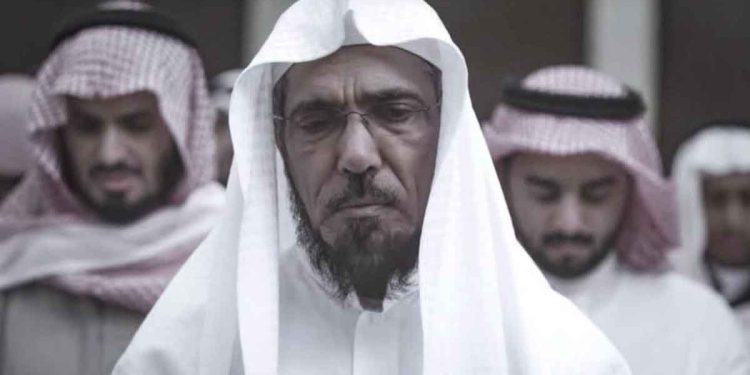Saudi academic Dr. Salman al-Awdah has spent six years in prison on freedom of speech charges.
According to his son Abdullah, al-Awdah has suffered difficult detention condition since his arrest in September 2017, that causes his half vision and hearing loss.
Al-Awdah’s son called his trial “weak and still pending,” adding that he has been barred from seeing his father for several years and from making phone calls to his family by the Saudi authorities.
“What happened to my father is internationally classified as torture,” the man declared.
“He was deprived of medical treatment, and was interrogated for long days with the aim of depriving him of sleep. He was given food and drink in tiny bags, which were thrown to him while his hands were still tied, forcing him to open them with his teeth getting hurt. His feet and hands were also bound.”
In September 2017, Saudi authorities arrested dozens of academics and activists, most notably Salman al-Awda, Awad al-Qarni and Ali al-Omari, on charges of “terrorism and conspiracy against the state,” amid demands from international and Islamic figures and organizations for their release.
Al-Awda’s son clarified in an article he wrote on February 14, 2019, that his father’s “indirect tweet about the Gulf crisis and his desire to achieve reconciliation angered the Saudi government, which considered it a criminal violation.”
He said that “the investigators told the father that adopting a neutral position on the Saudi-Qatari crisis and not standing with the Saudi government is a crime.”
On January 5, the “Al-Ula” statement was issued by the 41st Gulf Summit in Al-Ula city in northwestern Saudi Arabia, announcing the end of a severe crisis that erupted on June 5, 2017, between Qatar and Saudi Arabia, the UAE, Bahrain and Egypt.
After the reconciliation agreement, Al-Awda’s son wrote a piece in which he expressed his doubts about his father’s continued detention despite the lifting of the blockade of Qatar. He also emphasized the need for the release of all Saudi citizens who were caught up in the conflict and imprisoned for the three and a half years of the crisis. Notably, the Saudi authorities maintain a tight lid on the conditions of many detainees, despite reports of their deteriorating health or their exposure to abuse and torture.




























